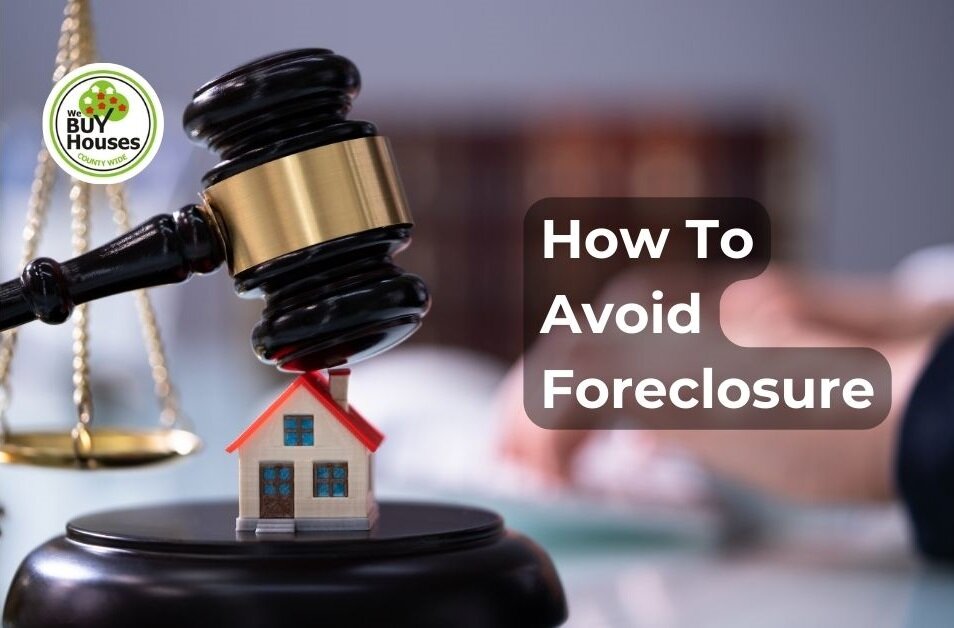
Facing foreclosure can be a stressful time for any homeowner. But don’t worry—there are ways of how to avoid foreclosure out there that can help save your home and your financial future. Life throws curveballs, from job losses to medical emergencies or just plain old unforeseen expenses. They can all lead to financial trouble. But there’s still hope. You have ways on how to avoid foreclosure. Options like loan modifications, mortgage forbearance, and even alternatives like a deed in lieu of foreclosure or a short sale could work for you. You might also want to consider HUD housing counseling or take advantage of government foreclosure programs for valuable foreclosure assistance. For some folks, dipping into a hardship withdrawal 401(k), using a home equity loan, or maybe even getting a reverse mortgage can secure much-needed funds.
Understanding Foreclosure
So what’s foreclosure all about? Well, it’s when a homeowner falls behind on mortgage payments, and the lender steps in to take the property. Yikes, right? The foreclosure process usually kicks off after a few missed payments, and if it continues, the lender can seize your home. It sounds harsh, but there are ways to put the brakes on it. For example, a loan modification could adjust your loan terms, making the payments a bit easier on the wallet. Or, if your financial struggles are temporary, mortgage forbearance could pause your payments for a while. Some people even opt for a short sale or a deed in lieu of foreclosure, where you hand over the property voluntarily to avoid the drama of a full-on foreclosure. And if things look tough in the long run, resources like HUD housing counseling, loss mitigation, and foreclosure mediation are available to help you figure it out.
Read Also:
How to Write Effective Harship Letter for Mortgate Reliefe
Effective Strategies to Avoid Foreclosure
Explore proven strategies to prevent foreclosure, including loan modifications, mortgage forbearance, short sales, and HUD counseling. Take control of your finances and safeguard your home from repossession.
Open Communication with Your Lender
Keeping an open line of communication with your lender is super important when you’re trying to avoid foreclosure. The earlier you reach out, the more options you’ll have on the table. Lenders would rather work with you to solve the problem than deal with the long and costly foreclosure process. Trust me, they don’t want your house; they want your payments. So, ask them about loan modification to adjust your payments or maybe even mortgage forbearance if you need a little break. If you’re already behind, you can inquire about a repayment plan to catch up. By keeping the lines open, you can unlock pre-foreclosure options like loss mitigation or foreclosure mediation. Ignoring your lender’s calls or letters will only make things worse. If you’re feeling unsure about how to talk to them, consider reaching out to HUD housing counseling.
Assess Your Financial Situation

Before you do anything else, you’ve gotta take a long, hard look at your financial situation. It might not be fun, but it’s one of the most important steps in foreclosure prevention. Start by creating a crisis budget to see if keeping your house is even an option right now. Maybe some expenses can be cut, or maybe you just need to rethink where your money’s going. Being honest with yourself here will help you figure out if you need financial hardship mortgage help or can handle things on your own. Consider dipping into savings, using a home equity loan, or even a hardship withdrawal 401(k) if you’re desperate. Having this clarity puts you in a better position to talk to your lender and explore options for stopping foreclosure.
Explore Loan Modification Options
Sometimes, adjusting the terms of your mortgage is exactly what you need to avoid foreclosure. A loan modification lets you do just that. You might get a lower interest rate, a longer term, or even a reduced principal balance, all of which make your payments more affordable. This is one of the more common solutions for homeowners who are dealing with long-term financial issues. Negotiating with your lender to get this done can help you stay on top of your mortgage and prevent foreclosure from progressing. It’s a good option, especially if you’re serious about keeping your home.
Consider Mortgage Forbearance
If you’re going through a rough patch that you know will only last a little while, mortgage forbearance could be the relief you need. This option lets you pause or reduce your payments for a set time. Keep in mind, though, once that period is over, you’ll have to repay those missed payments, either all at once or through a repayment plan. Still, this option gives you some breathing room and buys you time to get back on track without falling into the foreclosure trap. It’s a short-term fix, but sometimes that’s all you need to get your finances back in order.
Utilize HUD Housing Counseling
The Department of Housing and Urban Development (HUD) offers housing counseling services that can help you figure out your options. These HUD housing counseling sessions are free, so you don’t have to worry about extra costs. The counselors can guide you on how to apply for loan modification or forbearance, and help you explore government foreclosure programs that may be available to you. These experts know the ins and outs of foreclosure prevention, so don’t hesitate to use their services if you’re feeling overwhelmed.
Consider a Short Sale to Avoid Foreclosure
Not interested in keeping your home, or things have just gotten too tough financially? A short sale might be your way out. In this scenario, your lender lets you sell your house for less than what you owe on the mortgage. It doesn’t let you keep the home, but it can prevent the more serious consequences of a full-blown foreclosure. It’s not the most ideal solution, but when the situation calls for it, it can be a way to minimize the damage.
Explore a Deed in Lieu of Foreclosure
Another option to consider when you’re unable to make payments is a deed in lieu of foreclosure. With this option, you voluntarily hand over your home to the lender. This helps you avoid the stress and credit hit that comes with foreclosure. It can be a smart way to get out of a tough financial situation while protecting your credit score as much as possible. Just make sure this option is right for you before going down this road.
Leverage Your 401(k) for Hardship Withdrawal
If you’ve got a retirement fund, a hardship withdrawal 401(k) could help you avoid foreclosure. This lets you withdraw funds to cover your mortgage payments and get back on track. However, this should really be a last resort because taking money from your retirement can hurt your future financial security. But if you’re desperate to save your home, it’s an option worth considering.
Reverse Mortgage for Senior Homeowners
If you’re over 62 and own significant equity in your home, a reverse mortgage could provide the financial help you need. This option lets you convert your home equity into cash, which can then be used to pay off your delinquent mortgage. The upside? You don’t have to sell your house or make monthly payments. The downside? You still have to meet certain conditions, like paying property taxes and insurance, or you could still face foreclosure. So, make sure to weigh the pros and cons carefully before choosing this route.
Bankruptcy as a Last Resort
When all else fails, filing for bankruptcy can temporarily stop the foreclosure process. But let’s be real—bankruptcy and foreclosure both leave deep marks on your credit. It can be a lifesaver if you need time to work out a repayment plan, but it should only be used as a last resort. Always talk to a financial advisor or attorney before making this decision because the long-term consequences are serious.
Government Foreclosure Programs
Sometimes, the government has your back. There are various government foreclosure programs out there to help you keep your home. For instance, if you’ve got an FHA loan, you might qualify for FHA foreclosure help like loan modifications or forbearance. Veterans can tap into VA assistance programs, and even Fannie Mae and Freddie Mac have flex modification programs to help homeowners struggling to make payments. Be sure to check what’s available to you.
Final Thoughts

When it comes to saving your home, acting fast and being informed are your best allies. By knowing your options—like loan modification, mortgage forbearance, and government foreclosure programs—you can take control of your situation. Don’t hesitate to reach out to professionals, including your lender and HUD housing counseling, and explore every option available. Being proactive can make the difference between keeping your home and losing it.
FAQs
1. How does a loan modification prevent foreclosure?
A loan modification adjusts the terms of your mortgage to make it more affordable, often reducing the monthly payment, and making it easier to keep up with payments.
2. Can mortgage forbearance stop foreclosure permanently?
No, mortgage forbearance is a temporary solution that pauses payments. After the forbearance period, you will need to repay the missed payments to avoid foreclosure.
3. What is the difference between a short sale and a deed in lieu of foreclosure?
A short sale allows you to sell the property for less than the mortgage balance, while a deed in lieu of foreclosure involves voluntarily transferring the property to the lender to avoid foreclosure.
4. Is filing for bankruptcy a good way to prevent foreclosure?
While bankruptcy can temporarily halt the foreclosure process, it significantly impacts your credit score and should only be considered as a last resort.
5. Can government programs help me avoid foreclosure?
Yes, programs like FHA foreclosure help and government foreclosure programs provide support, including loan modifications and forbearance options, to help homeowners avoid foreclosure.
Resources:
- HUD: https://www.hud.gov/topics/avoiding_foreclosure
- Govt. USA: https://www.usa.gov/avoid-foreclosure
- DelauroHouses Gov: https://delauro.house.gov/services/casework/avoid-foreclosure
